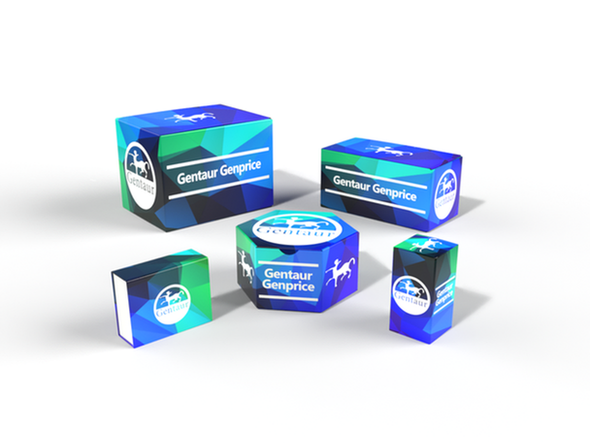740
Human Syncollin (SYCN) ELISA Kit | AE16028HU
- SKU:
- 740-AE16028HU
- Availability:
- Usually ships in 5 working days
Description
Human Syncollin (SYCN) ELISA Kit | AE16028HU | Gentaur UK, US & Europe Distribution
Species Reactivity: Human (Homo sapiens)
Abbreviation: SYCN
Alternative Name: FLJ27441; INSSA1; SYL; insulin synthesis associated 1
Application: ELISA
Range: 0.156-10 ng/mL
Sensitivity: 0.054 ng/mL
Intra-Assay: ≤5.8%
Inter-Assay: ≤10.9%
Recovery: 1, 06
Sample Type: Serum, Plasma, Other biological fluids
Detection Method: Sandwich
Analysis Method : Quantitive
Test Principale: This assay employs a two-site sandwich ELISA to quantitate SYCN in samples. An antibody specific for SYCN has been pre-coated onto a microplate. Standards and samples are pipetted into the wells and anySYCN present is bound by the immobilized antibody. After removing any unbound substances, a biotin-conjugated antibody specific for SYCN is added to the wells. After washing, Streptavidin conjugated Horseradish Peroxidase (HRP) is added to the wells. Following a wash to remove any unbound avidin-enzyme reagent, a substrate solution is added to the wells and color develops in proportion to the amount of SYCN bound in the initial step. The color development is stopped and the intensity of the color is measured.
Product Overview: Syncollin is a 13 kDa protein that is highly expressed in the exocrine pancreas. Syncollin normally exists as a doughnut-shaped homo-oligomer (quite probably a hexamer) in close association with the luminal surface of the zymogen granule membrane. Functions in exocytosis in pancreatic acinar cells regulating the fusion of zymogen granules with each other. May have a pore-forming activity on membranes and regulate exocytosis in other exocrine tissues. Syncollin is a small protein that is abundantly expressed in pancreatic acinar cells and that is tightly associated with the lumenal side of the zymogen granule membrane.
Stability: The stability of ELISA kit is determined by the loss rate of activity. The loss rate of this kit is less than 5% within the expiration date under appropriate storage condition. The loss rate was determined by accelerated thermal degradation test. Keep the kit at 37°C for 4 and 7 days, and compare O.D.values of the kit kept at 37°C with that of at recommended temperature. (referring from China Biological Products Standard, which was calculated by the Arrhenius equation. For ELISA kit, 4 days storage at 37°C can be considered as 6 months at 2 - 8°C, which means 7 days at 37°C equaling 12 months at 2 - 8°C) .






